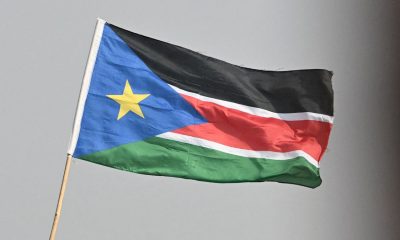Business
Kenya Power Set to Compensate Consumers for Extended Blackouts Under New Regulations
Consumers seeking compensation for property damage must provide invoices or valuation reports, while those claiming for bodily harm must present valid medical reports.

Kenya’s electricity consumers are on the verge of receiving financial compensation for extended power outages and erratic supply under new draft regulations that could fundamentally change how the utility giant Kenya Power operates.
The Draft Energy (Electricity Reliability, Quality of Supply and Service) Regulations, 2025, published by the Energy and Petroleum Regulatory Authority (Epra), propose that consumers receive compensation equivalent to 75 percent of their average daily consumption when hit by prolonged blackouts. This marks a significant shift from the current system where Kenya Power only compensates for equipment damage but not for financial losses from power cuts.
Under the proposed framework, compensation will be tiered based on consumption levels, with small domestic users consuming less than 30 units monthly receiving up to Sh2.92, while large industrial consumers accessing power at 66 kilovolts could receive up to Sh550,559.85. Households consuming between 30 and 100 units would be entitled to a maximum of Sh37.50 in compensation.
The regulations also address delays in restoring power after scheduled maintenance, with consumers set to receive 1.5 times their average daily consumption, capped at Sh734,079.80. Prepaid customers would receive free tokens from Kenya Power, while postpaid customers would see their bills adjusted accordingly.
This development comes after years of complaints from Kenyan businesses about the competitive disadvantage caused by frequent power outages linked to an aging grid and unreliable supply. The utility has attributed most blackouts to vandalism of transmission networks and aging infrastructure unable to handle sudden electricity load surges.
Kenya Power’s financial position has improved dramatically, with the company reporting a 30-fold increase in net profit to Sh9.97 billion in the six months to December 2024, up from Sh319 million in the same period the previous year. The utility now serves 10.06 million customers as of June 2025, benefiting from a stronger shilling and increased electricity sales.
The compensation model mirrors systems used in European countries where utilities are mandated to compensate consumers for extended outages. However, consumers will not receive compensation if blackouts result from force majeure events, third-party interference such as road works, vandalism, or electrical faults on the consumer’s side beyond the metering point.
This represents a reversal from 2015 when Parliament rejected similar compensation legislation, primarily to protect Kenya Power during a period when the company faced significant financial challenges from vandalism and high default rates among prepaid customers.
The current push for compensation comes as high electricity costs drive major consumers toward alternative energy sources. Companies like East African Breweries have announced plans for biomass plants to completely disconnect from Kenya Power by 2030, while wealthy households increasingly invest in solar power systems.
Claims for compensation must be filed within one year of the incidents, with settlements required within 90 days after Epra approval. Consumers seeking compensation for property damage must provide invoices or valuation reports, while those claiming for bodily harm must present valid medical reports.
The regulations are currently under public participation, with no specific timeframe indicated for when blackout duration triggers compensation eligibility. If implemented, this system could significantly impact Kenya Power’s operational costs while potentially improving service reliability as the utility faces direct financial consequences for poor performance.
Kenya Insights allows guest blogging, if you want to be published on Kenya’s most authoritative and accurate blog, have an expose, news TIPS, story angles, human interest stories, drop us an email on [email protected] or via Telegram
-

 News2 weeks ago
News2 weeks agoUK-Based Website Faces Scrutiny Over Alleged Sexual Exploitation Of Kenyan Women
-

 Investigations2 weeks ago
Investigations2 weeks agoMistreatment and Gross Misconduct: Thika Cloth Mills Accused of Bribing Labour Ministry Officials to Muzzle Workers’ Revolt
-

 Politics1 week ago
Politics1 week agoODM Shuts Door on Gachagua Alliance, Signals Long-Term Deal with Ruto Ahead of 2027
-

 Politics2 weeks ago
Politics2 weeks agoUhuru Kenyatta Draws Battle Lines in Mt. Kenya Politics Defends Gachagua and Warns Jubilee Rebels to Toe the Line
-

 News2 weeks ago
News2 weeks agoBusinessman Adan Haji Isaack on Spot for Allegedly Harassing City Professor Over Disputed Land
-

 News2 weeks ago
News2 weeks agoKenyan Activists Bob Njagi and Nicholas Oyoo Released After 38 Days in Ugandan Custody
-

 Investigations1 week ago
Investigations1 week agoPeter Agoro Legal Battles Reveal How EACC Framed a Whistleblower to Protect Corrupt Elites
-

 Investigations2 weeks ago
Investigations2 weeks agoEXCLUSIVE: The $1.7 Billion Oil Heist That’s Starving South Sudan While Elites Feast on Blood Money




















